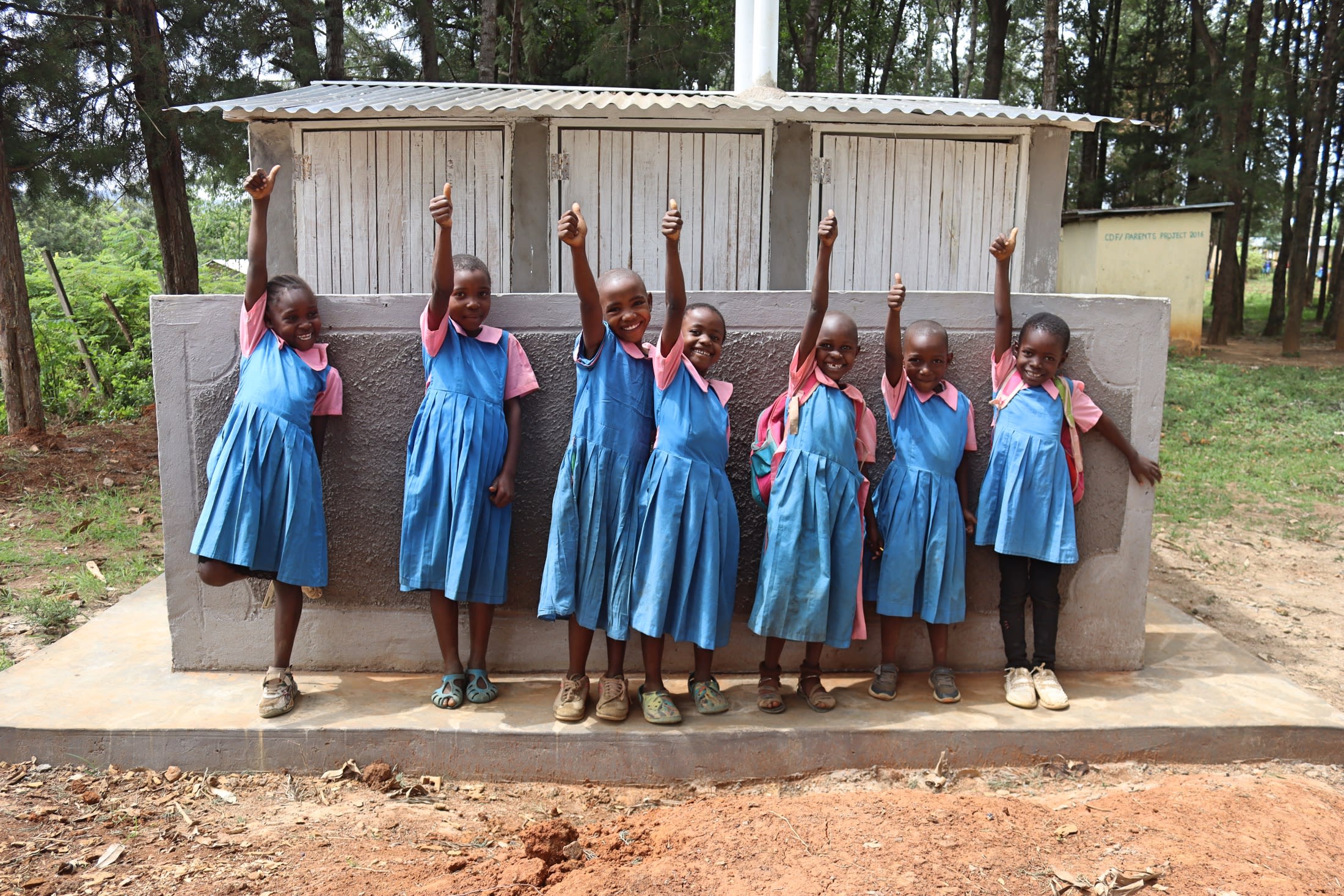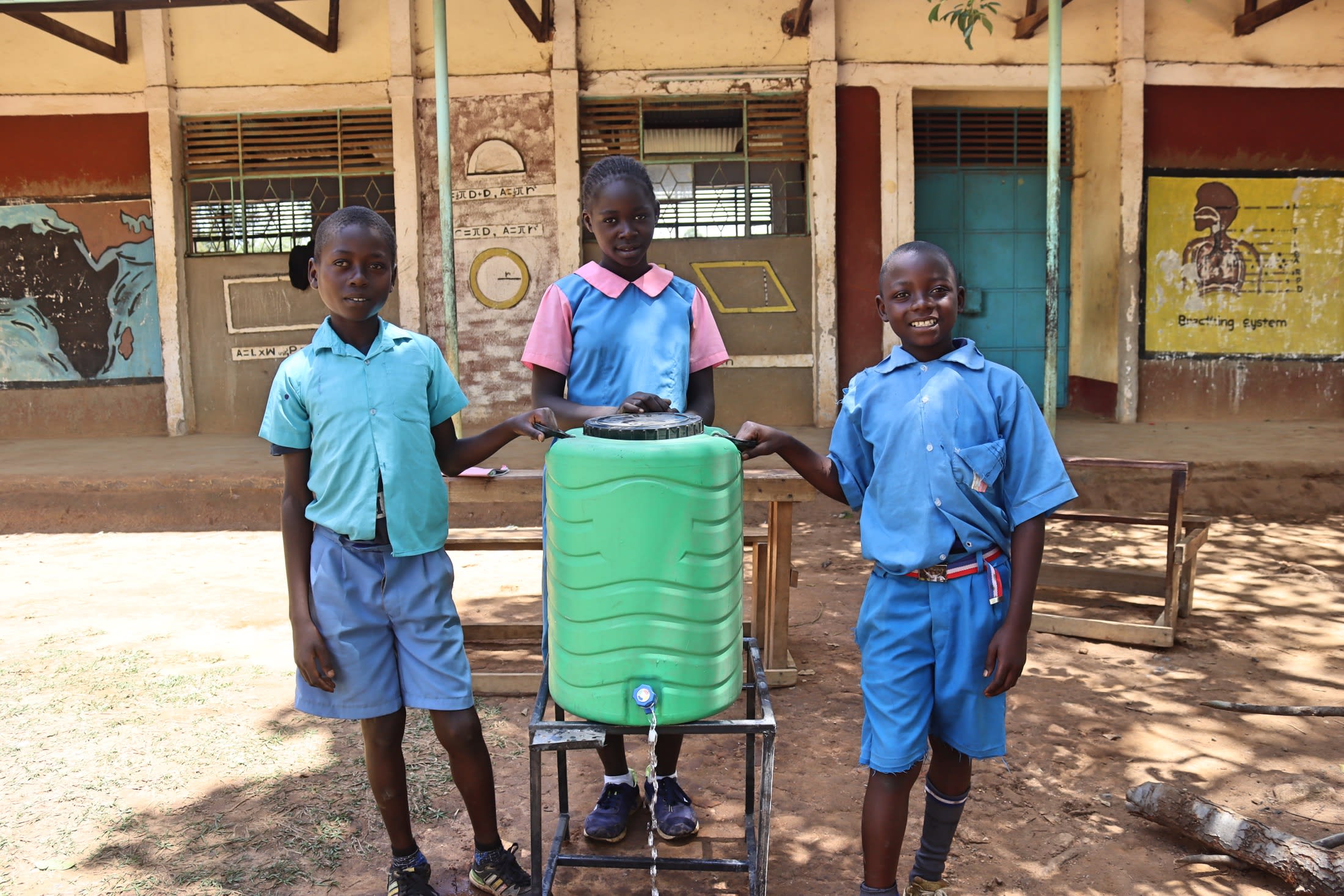Manda K Primary School has a massive student population of 780 students who are tired of second place when it comes to water access.
They share a borehole well on the campus of the nearby secondary school, but it is not an easy or reliable solution. The older students feel no shame about using their size and influence to push the younger children aside, causing them to wait in long queues, leaving them late to class or unable to collect sufficient water before they must race back to school.
"This water point (the well), of course, always helps us, but accessibility is always a challenge. If we can get our own [well], then we will appreciate [it] and improve [our] hygiene and sanitation in our school," said 12-year-old Mitchell N. (shown below).
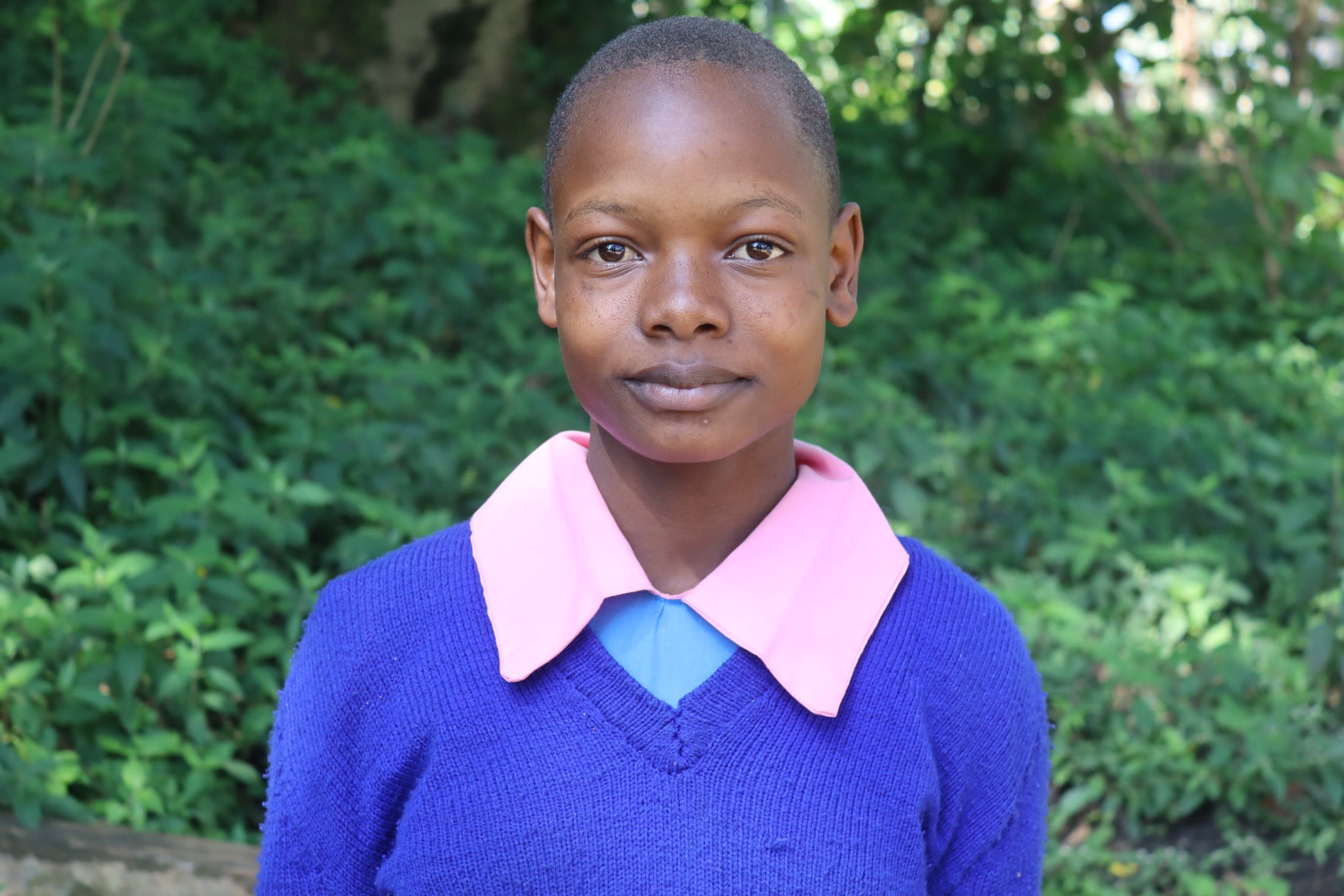
Since the well is shared, it is overtaxed and experiences frequent breakdowns, causing students from both schools to rely on the local spring instead. But the spring has its own issues with a slow discharge rate, particularly during the dry season when the water slows to barely a trickle. People must fetch water from a nearby pool of cloudy, dirty water instead, which everyone knows may make them ill since it's most likely contaminated.
And sadly, once again, the younger students are at a disadvantage due to their size when the older students and even community members push them aside to access water first.
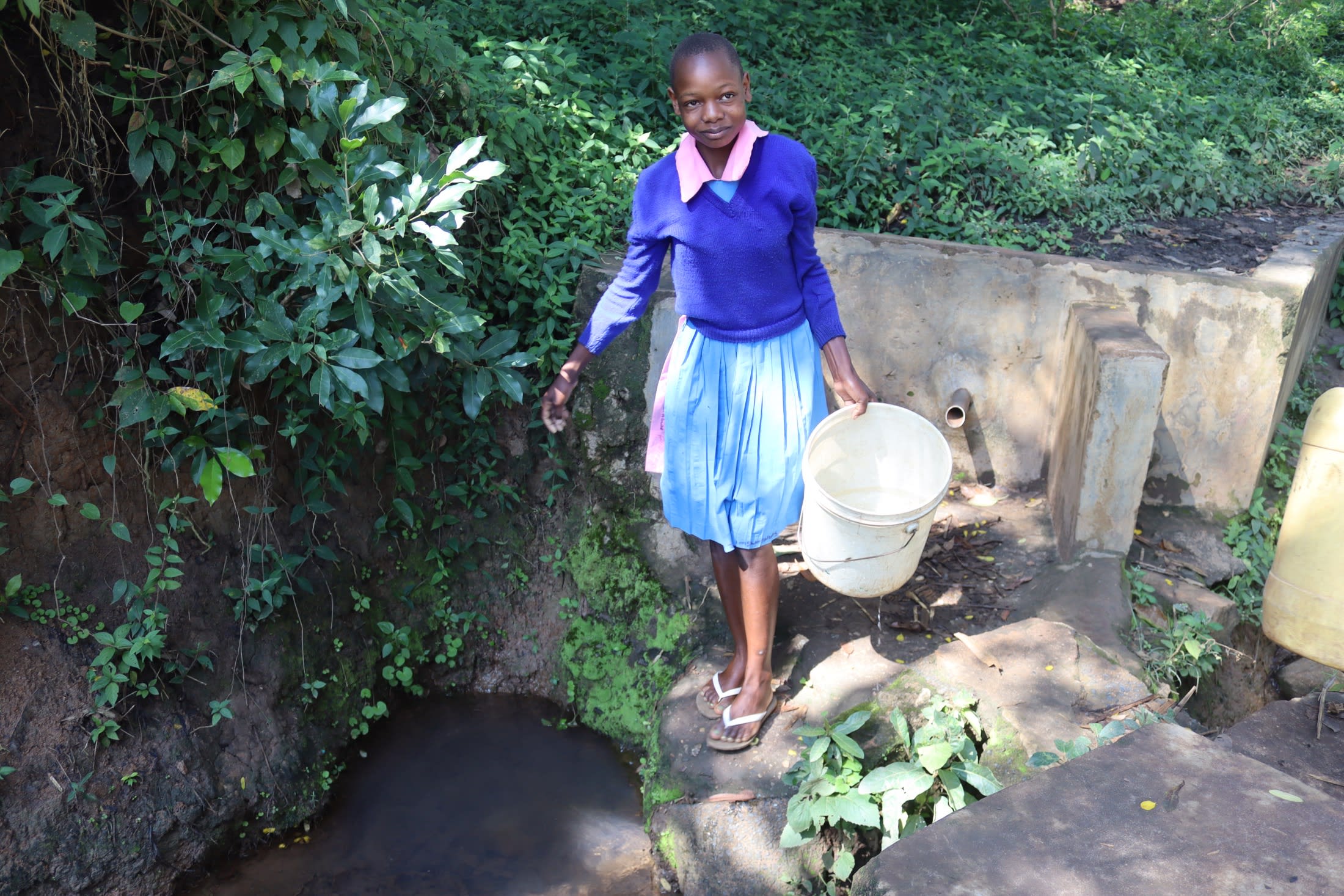
"Teachers have had fears of contracting typhoid when students bring water from home or [the] spring. The containers carrying water are always dirty. You have seen how the spring looks like; it is pathetic," said teacher Mark Mukalo, shown below at the secondary school's well.
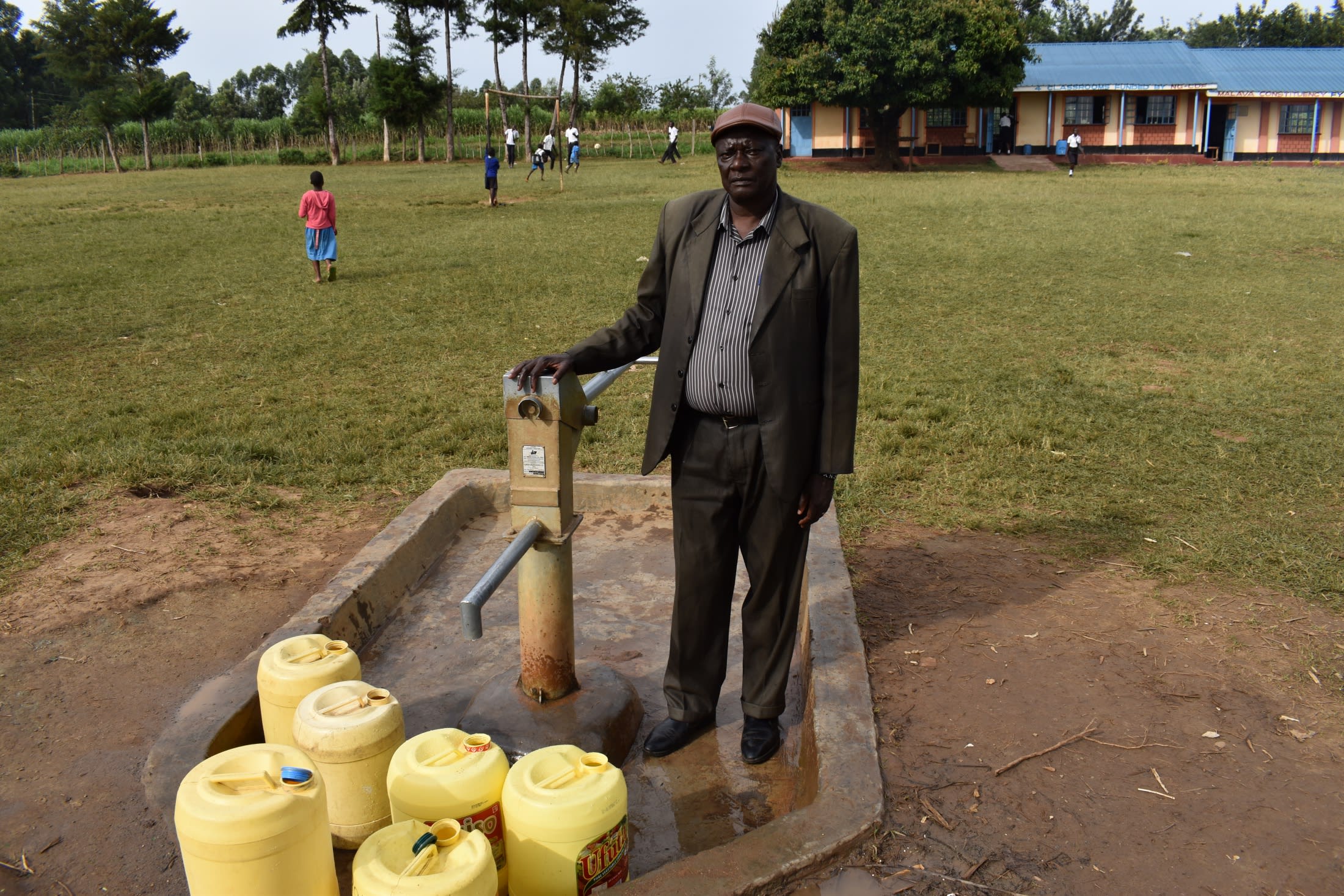
Our field officer Amos reported: "Access to this water is challenging and results [in] low performance in academics among students as a result of time wastage. The spring location is a distance from [the] school. I took personal time to visit the spring, which took us 25 minutes round trip with one pupil."
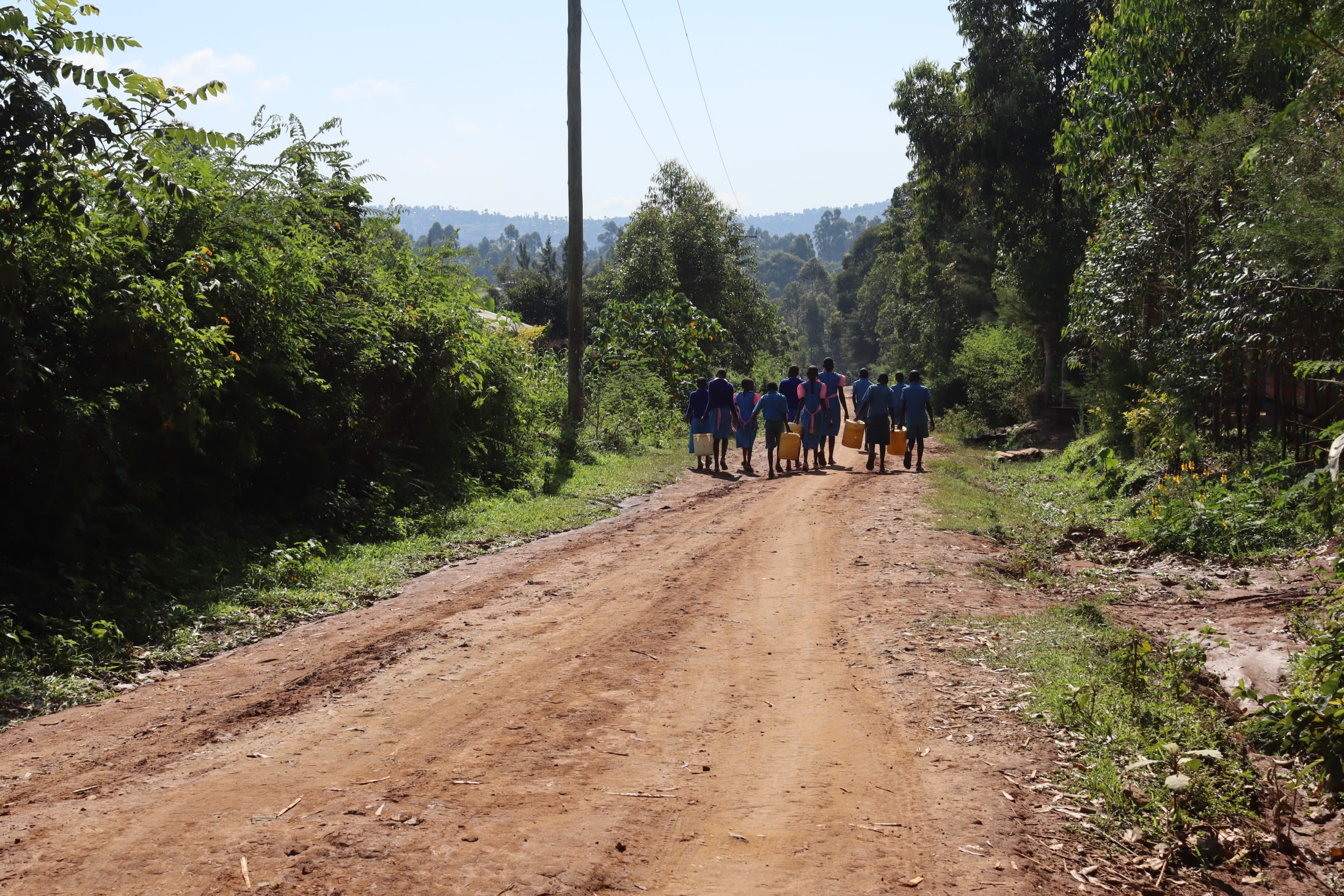
The students at this school need a well of their own so they can return to class quickly and concentrate on learning and hopefully feel like they deserve clean, accessible water as much as anyone else in the community.
What We Can Do:
New Well
We conducted a hydrogeological survey at this school and the results indicated the water table beneath it is an ideal candidate for a borehole well. Due to a borehole well's unique ability to tap into a safe, year-round water column, it will be poised to serve all of the water needs for this school's large population, even through the dry months.
The school will help collect the needed construction materials such as sand, rocks, and water for mixing cement. They will also provide housing and meals for the work team, in addition to providing local laborers. We will complement their materials by providing an expert team of artisans and drilling professionals, tools, hardware, and the hand-pump. Once finished, water from the well will then be used by the school’s students and staff for drinking, handwashing, cooking, cleaning, and much more.
Handwashing Stations
The student health club will oversee the two new handwashing stations we will provide, and make sure they are kept clean and in working condition. The club leaders will fill the handwashing stations with water daily and make sure they are always supplied with a cleaning agent such as soap or ash.
VIP Latrines
We will construct two triple-door latrine blocks using local materials that the school will help gather. Three doors will serve the girls and three doors will serve the boys. All of these new latrines will have cement floors that are designed to be easy to use and to clean. And with a borehole right on school property, there should be enough water to keep them clean.
Training on Health, Hygiene, COVID-19, and More
We will hold a one-day intensive training session with students, teachers, and parents. This training will cover a wide range of topics including COVID-19 symptoms, transmission routes, and prevention; personal and environmental hygiene; and the operation and maintenance of the borehole, latrines, and handwashing stations. There will be a special emphasis on handwashing.
Our team of facilitators will use a variety of methods to train, including participatory hygiene and sanitation transformation, and asset-based community development. We will initiate a student health club, which will prepare students to lead other pupils into healthy habits at school and at home. We will also lead lectures, group discussions, and provide illustrative handouts to teach health topics and ways to promote good hygiene practices within the school including handwashing and water treatment. We will then conduct a series of follow-up trainings before transitioning to our regularly scheduled support visits throughout the year.
We and the school strongly believe that all of these components will work together to improve standards at this school, which will help lead to better student academic performance and will help unlock the opportunity for these students to live better, healthier lives.





 Borehole Well and Hand Pump
Borehole Well and Hand Pump
 Rehabilitation Project
Rehabilitation Project



















